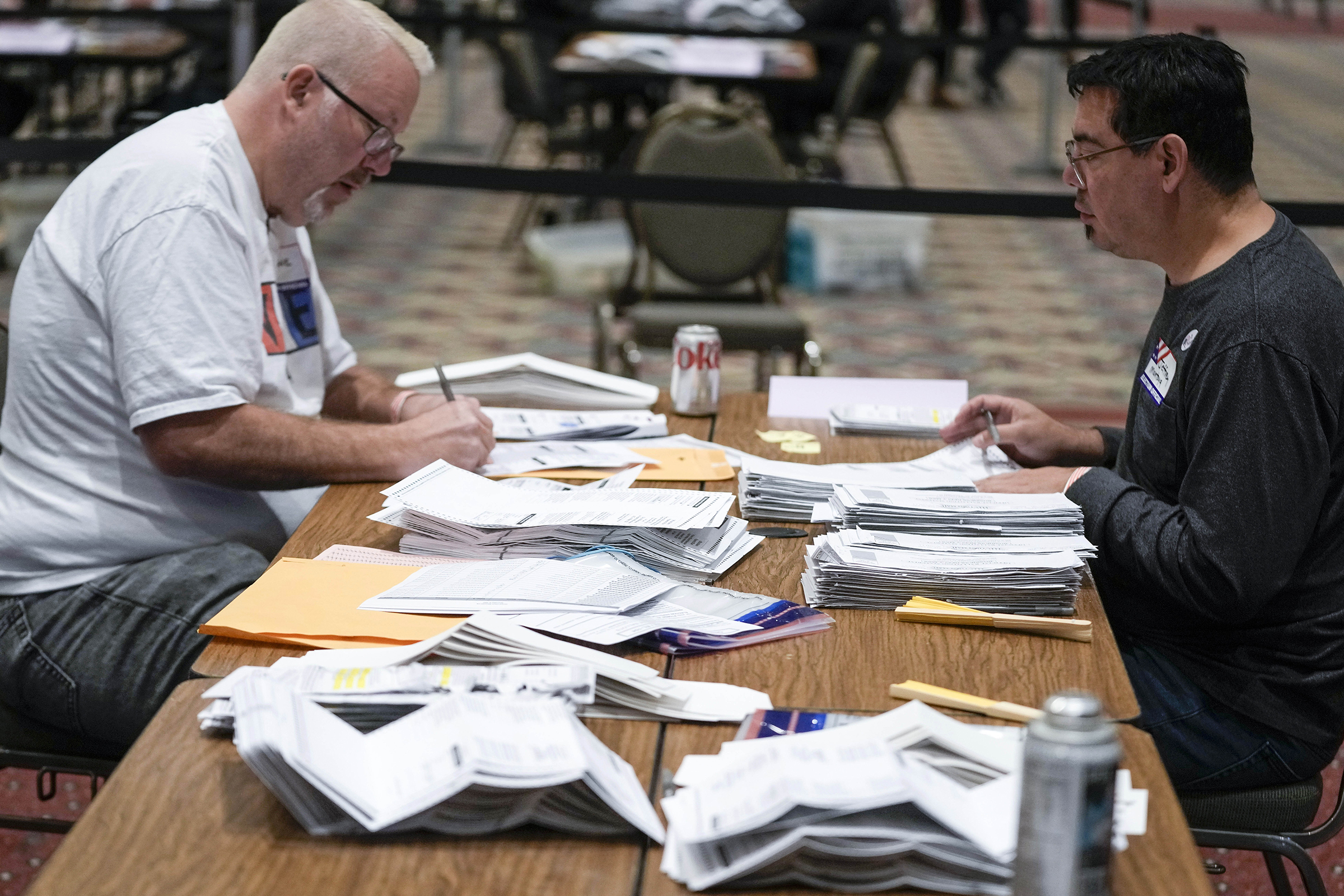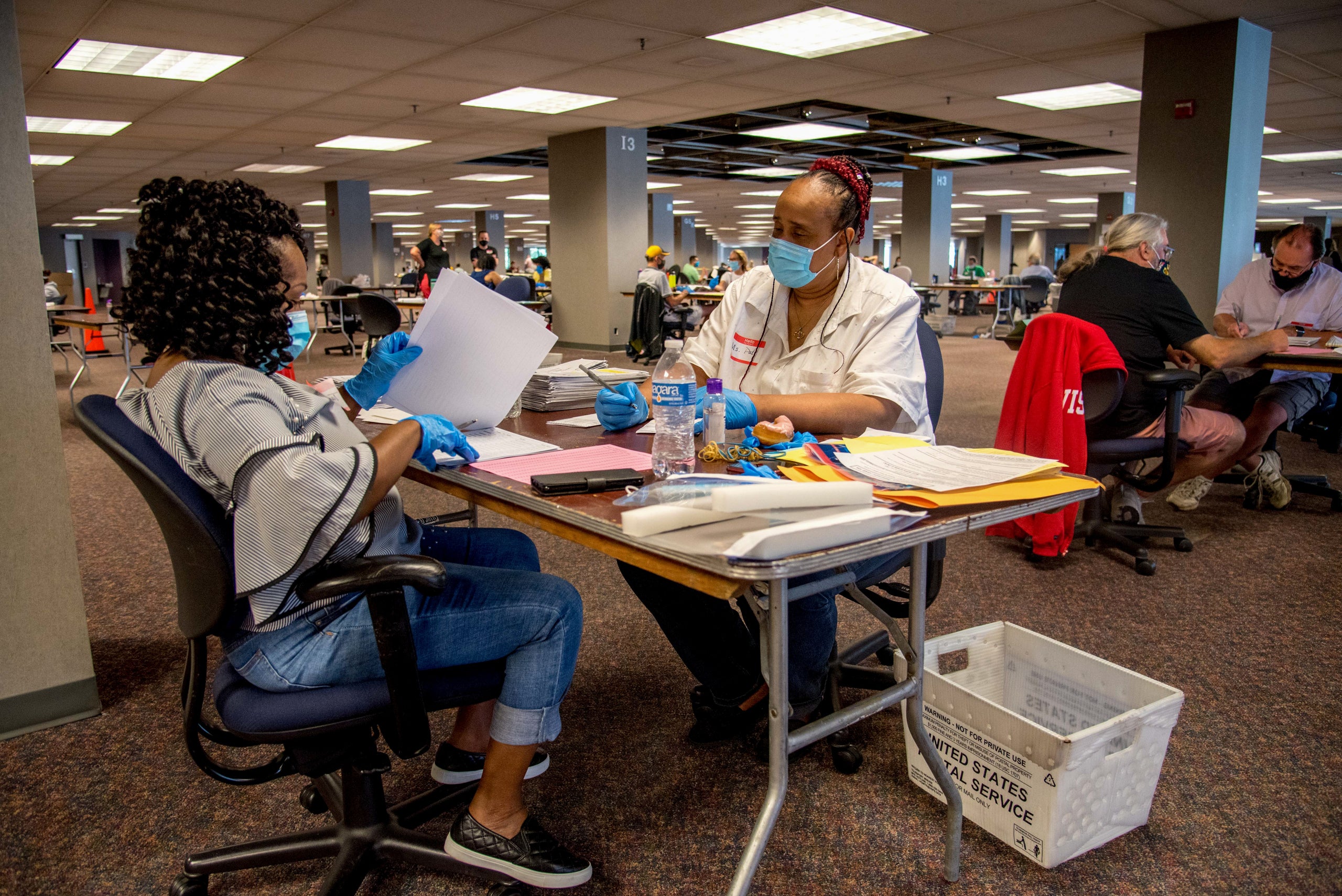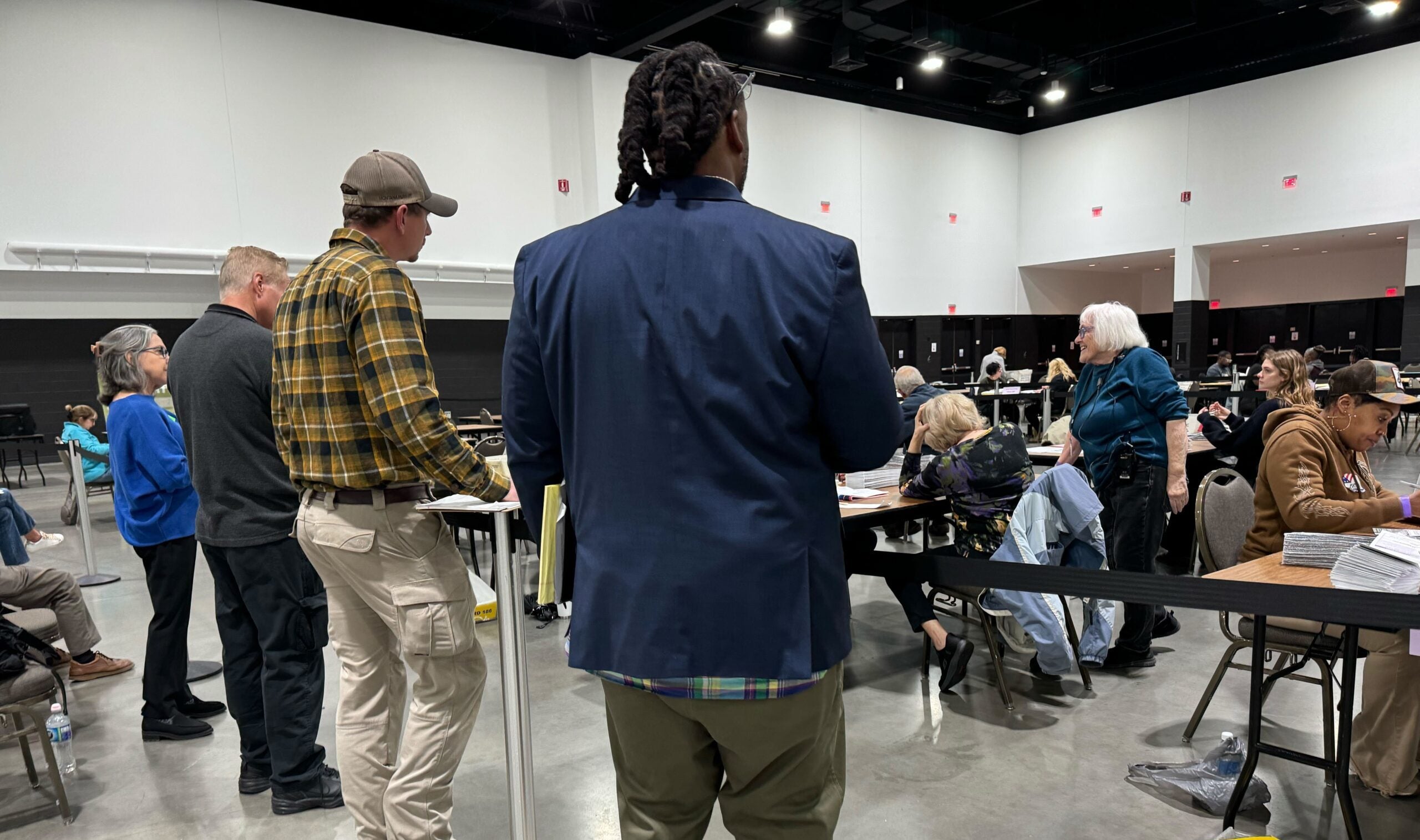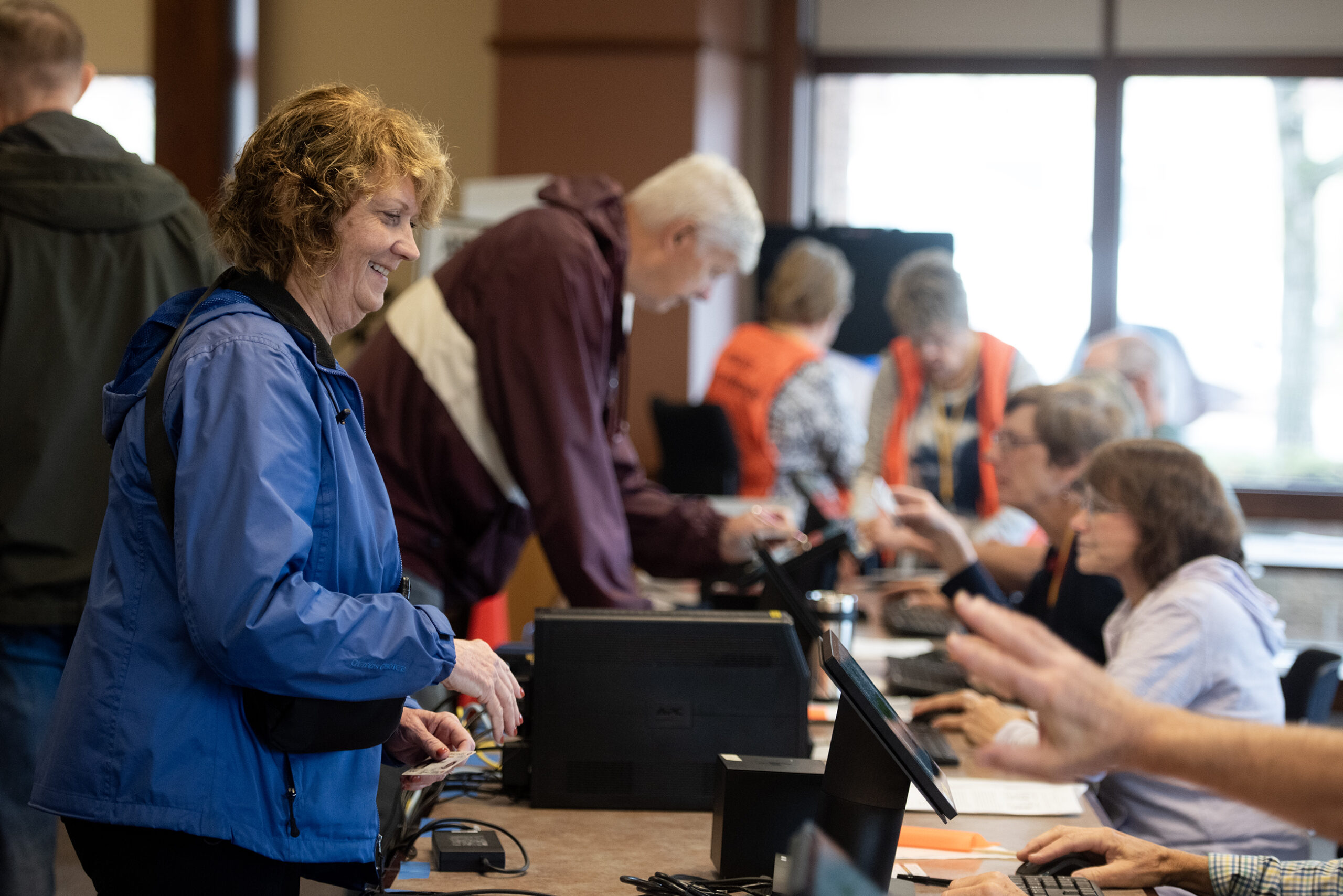Lawmakers in the Wisconsin Assembly approved nearly two dozen election-related bills on Thursday, including a bipartisan proposal to let clerks start processing absentee ballots earlier than Election Day that Gov. Tony Evers has signaled he will support.
Other proposals that received bipartisan support would set up a notification system for absentee voters, make it difficult to close polling places close to an election and protect election workers from doxxing and harassment.
Lawmakers also approved Republican proposals to allow election observers to get closer to voters, tighten up the special voting deputies system for voters in nursing homes and redefine the meaning of “indefinitely confined” voters.
Stay informed on the latest news
Sign up for WPR’s email newsletter.
The raft of legislation comes almost exactly a year out from the 2024 presidential election, and reflects the ongoing fallout of the 2020 election, which was marked by confusion about how to respond to the COVID-19 pandemic and marred by unfounded claims of fraud.
They also come as some of Wisconsin’s absentee voter practices are being challenged in courts, including a ban on drop boxes that emerged after 2020.
In a written statement, Britt Cudaback, spokesperson for Gov. Tony Evers, said Evers would “veto any bill that enables politicians to interfere with our elections or makes it harder for eligible Wisconsinites to cast their ballot,” without naming which proposals might be included in that list.
“But if there are common-sense proposals that help ensure Wisconsin’s elections continue to be fair, secure, and safe, he’ll certainly consider signing them,” Cudaback added.
Lawmakers also approved three proposed constitutional amendments, which cleared the state Senate earlier this week. Two, which would ban non-citizen voting and the use of private funds for elections respectively, have passed a previous legislative session, which means they will next go before voters. The private funds question will be on the April primary ballot and the non-citizen question will be on the ballot in November.
The third, which would permanently enshrine the state’s voter ID law, would need to be approved in a second legislative session.
Constitutional amendments must be approved by voters and are not subject to a governor’s veto.

Bipartisan support for some responses to 2020 election
The proposal to count absentee ballots before Election Day is years in the making. Because large cities like Milwaukee and Madison — which are also Democratic strongholds — have such a quantity of absentee ballots, those results take longer to process. In 2020, that meant that the final Milwaukee tally wasn’t known until the middle of the night, fueling former President Donald Trump’s false claims of vote dumping.
The final bill would allow clerks to begin some aspects of ballot processing the day before a Tuesday Election Day. It would also require communities that use a “central count” location for counting ballots to begin the canvasing process on the day before the election.
Lawmakers on both sides of the aisle praised the plan.
“We’re not rushing things, we’re just providing an opportunity that many states have already done — red states and blue states,” said Rep. Lee Snodgrass, D-Appleton.
Evers’ office said the governor had proposed allowing the early canvassing of absentee ballots for years and was glad to see the effort had bipartisan support.
There was also broad support from both parties for a proposal to allow absentee voters to opt into a texting service keeping them apprised of when their ballots were sent out and received back. Both parties also backed another bill that would make it much more difficult to close polling places even in times of emergency, and require robust advance notice.
The bill’s co-author, Rep. Shae Sortwell, R-Two Rivers, said this was to avoid a repeat of what happened in Wisconsin cities in the spring of 2020. In Milwaukee particularly, all but two polling places were closed as officials grappled with how to run an election in the early days of the pandemic, forcing people to wait in hours-long lines and drawing national criticism.
“If we do not continue to uphold our elections and the right of people to vote, then why are we in this building?” he said. “The impetus of this bill is to say that in Wisconsin, never again will we simply shut down our polling locations because of difficult times.”
That bill passed 95-2.
Lawmakers also approved a bill aimed at preventing harassment and doxxing — or sharing the private information — of election workers. The proposal would make harming election workers a felony, and make some personal information harder to access in the wake of increasing threats against election workers.
“It’s our duty to ensure that those who serve this vital role are shielded from potential harm,” said Rep. Joy Goeben, R-Hobart.

Other election-related bills approved on Thursday
Lawmakers narrowly approved a bill that would forbid a candidate who lost a primary from running a write-in campaign. Sometimes referred to as the “sore losers bill,” its proponents argue that it would prevent intra-party infighting.
While write-in campaigns are relatively rare in Wisconsin, a notable recent one threatened the Assembly Speakership of Rep. Robin Vos, R-Rochester, last year. Adam Steen, a political newcomer who narrowly lost to Vos in the primary, mounted a write-in campaign for the general election, which Vos ultimately won handily.
That proposal passed 52-45, an especially close margin in a chamber where Republicans hold a 64-35 majority.
Lawmakers also approved bills that would:
- Allow election observers to operate within three feet of poll workers and levy a fine or possible jail time for observers who disrupt voting or electioneer.
- Redefine “indefinitely confined” voters as those unable to travel independently for reasons that will affect them for longer than one year.
- Require meetings between nursing home residents and special voting deputies to be arranged at certain times and for residents’ relatives to be notified.
- Set an age cap of 75 on elected judges.
- Remove the governor’s power to fill vacancies in the offices of secretary of state, treasurer, attorney general and state superintendent of public instruction without a Senate confirmation process.
- And establish an exchange between the Wisconsin Elections Commission and the Department of Transportation so that the citizenship of each Wisconsin voter can be verified.
Wisconsin Public Radio, © Copyright 2025, Board of Regents of the University of Wisconsin System and Wisconsin Educational Communications Board.




